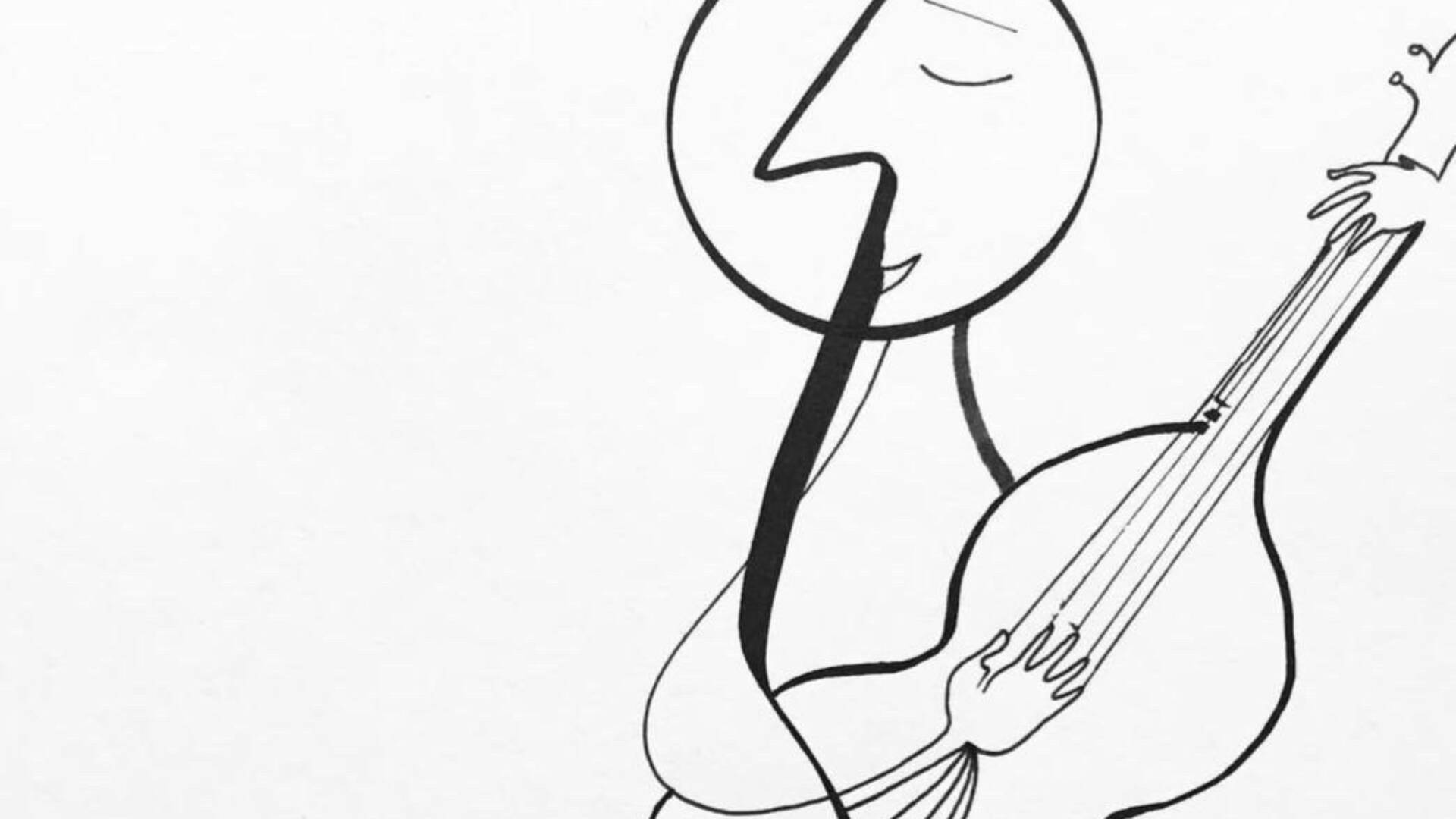
05.11.25

The following article is a result of many years of close listening and two conversations with local singer-songwriters over cups of coffee at Höfn. Meeting Rhuari Campbell in June and Monica-Lucia Madas in September, we spoke at length on the busking and folk music scene in Dundee and during our conversations themes of isolation, ecosystemic thinking, identity and self-care emerged.
The first thing I mention to Rhuari is my insistence on the word ‘troubadour’ – that deliciously archaic term for a busker-figure whose Latin roots consist of ‘trobar’: to compose, to discuss, to invent and which led me to this idea. As an alt-folk songwriter of many years, the word seemed a fitting phrase for his creative endeavours which includes three home-recorded EPs and two full-length albums, with the latest released in late 2024.
In turn he gives me ‘jongleur’ – the title of a 10-minute long EP he released last summer and according to the Oxford dictionary, an itinerant minstrel. When I relay this new word to Monica, she is delighted. As a puppeteer, illustrator, dancer, musician and songwriter, the ‘jongleur’ with its homophonic ‘juggling’ strikes a chord. She knows what it is to juggle many projects and spin many plates.
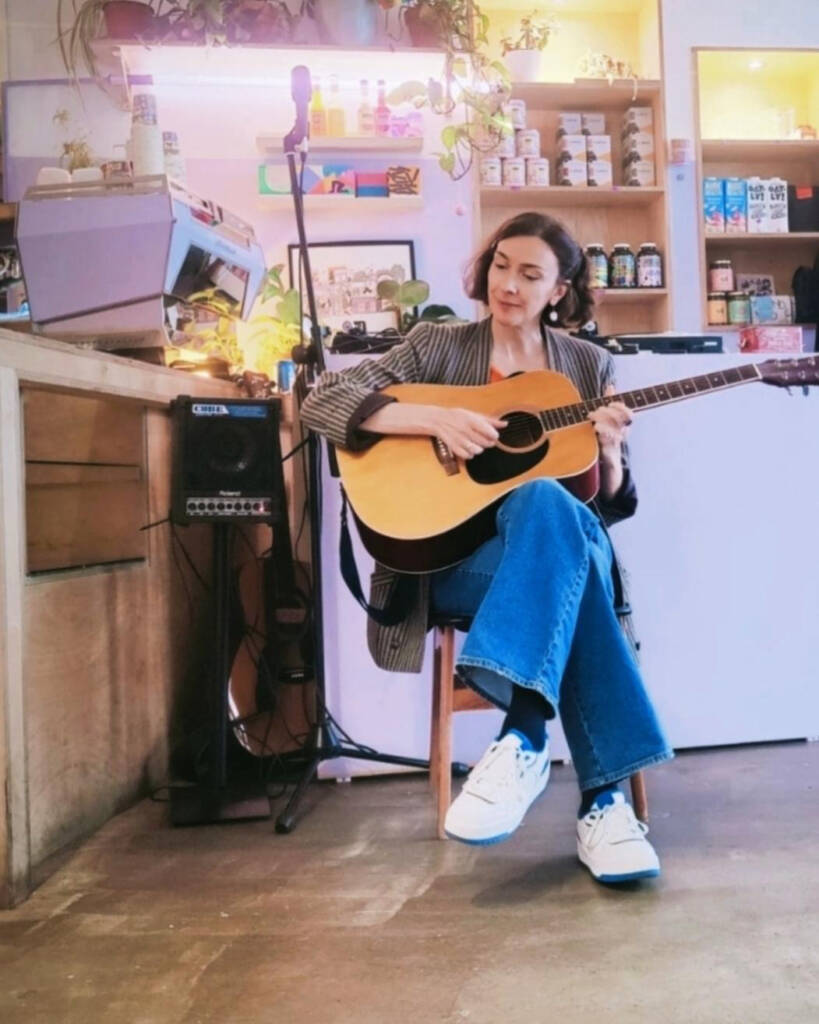
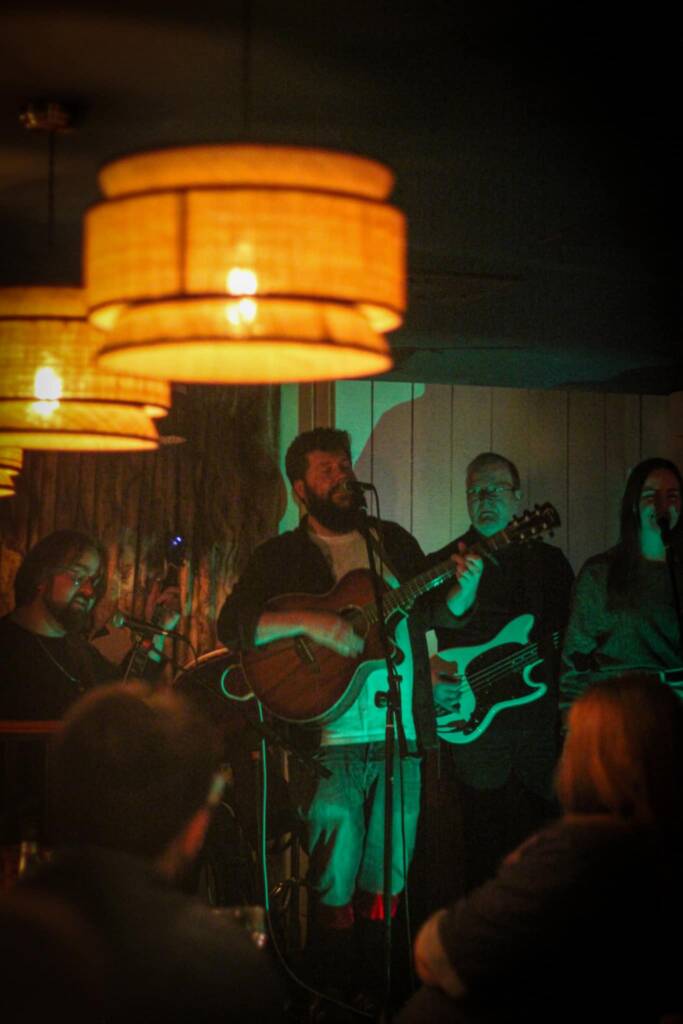
So we three exchange our outmoded utterances and try to reinstate some dignity to the underrated craft of busking in the city. Save for the odd duo, generally consisting of some fella on a drumbox, it’s often a solitary endeavour. Rhuari and I trace backwards trying to figure out why the band culture that we knew growing up (think The View, The Fratellis, Frightened Rabbit, etc.,) seems to be vanishing across Scottish towns and cities.
It’s a complicated issue, for sure, of which gender and class play their roles. For one, music education is massively underfunded in schools and expensive outside of them, as is renting studio space big enough for a band to practice or accessing venues to perform. Both Rhuari and I are well familiar with the sort of chauvinist charades that the local bands, who did cobble enough money together, would inevitably have to resort to in order to generate the outrage and attention needed to find those bigger stages, bigger gigs, bigger cities.
Monica, who was a regular musician and street festival performer back in Transylvania, has found a preference for smaller, intimate performance spaces in Dundee. Forgoing the unpredictability and openness of the street, and professing a preference for the total creative liberation of a solitary practice over the juggling of hearts and minds that accompanies playing with others. A feeling Rhuari echoes succinctly: “being in a band is too hard, I’ll just go off and do my own thing.”
On this journey to finding the antidote for that macho music scene of the early 2000s, Rhuari reiterates the values that he wants to see uplifted in the music community: gently challenging fellow musicians to question whether they are sleeping enough, drinking water, resting, spending time in nature, nurturing their relationships. He speaks of self-care like taking care of a plant with this image lending itself naturally to the broader ecosystem of the east coast music scene and the care that it also requires.
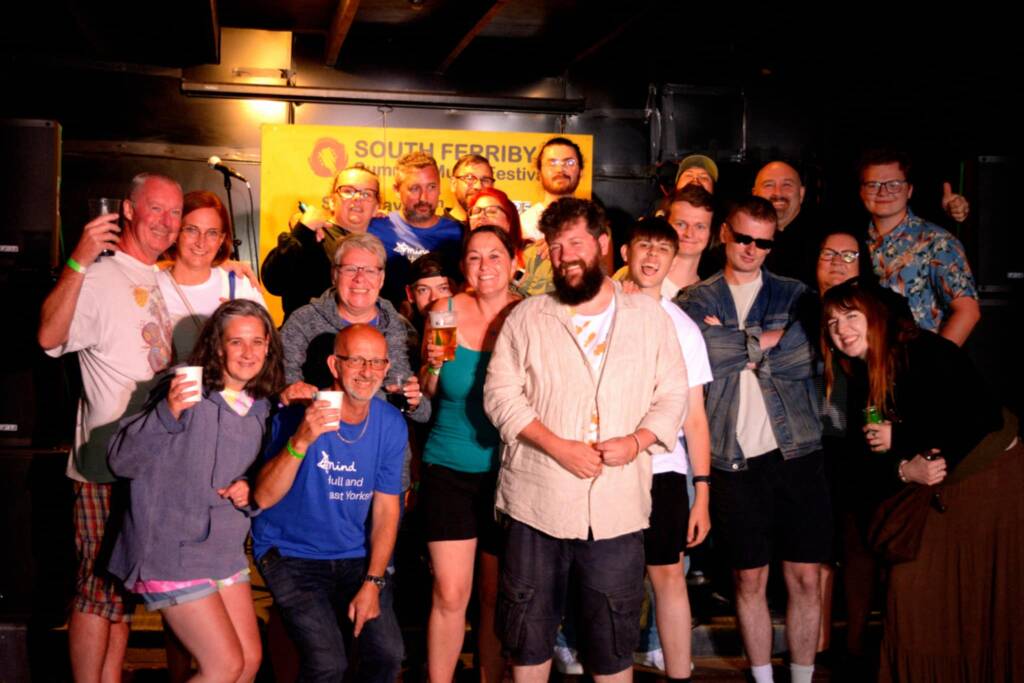
Of course, for a healthy music ecosystem to survive we need more than street corners and pubs to play in – recording studios, practice rooms, music shops are all businesses which converge to create a viable habitat for music-making. In the last year in Dundee, two music shops have closed alongside several bars and cafés known for supporting players in the city. But despite this, our conversations remain hopeful, considering the evidence that though the names and faces will change, the demand for these spaces necessitates their consistent re-emergence.
Arriving in Dundee in July 2023, Monica expresses enthusiasm for the uniqueness of Dundee (and the surrounding areas) music scene, finding niches and genre-defying sounds across its landscape. She attributes this to the plethora of open mic nights in the city and whilst the dates and venues are ever-changing, the activity is on-going. Lamenting the closure of Blend this year and the loss of its open mic sessions, she notes a preference for the café over the pub as an ideal venue for her music – simply because people listen more attentively, there is minimal background noise and a sober crowd.
The last time Monica met Rhuari, they were both playing a gig at City Flowers Garden Studio, a creative venue previously based within the Keiller Centre and a valued community space for some of the city’s musicians and poets. It is a space that joined a small but thriving coterie of active green and third-spaces across Dundee that bring music into their communities, such as recent projects at Ninewells Community Garden and the Maxwell Centre.
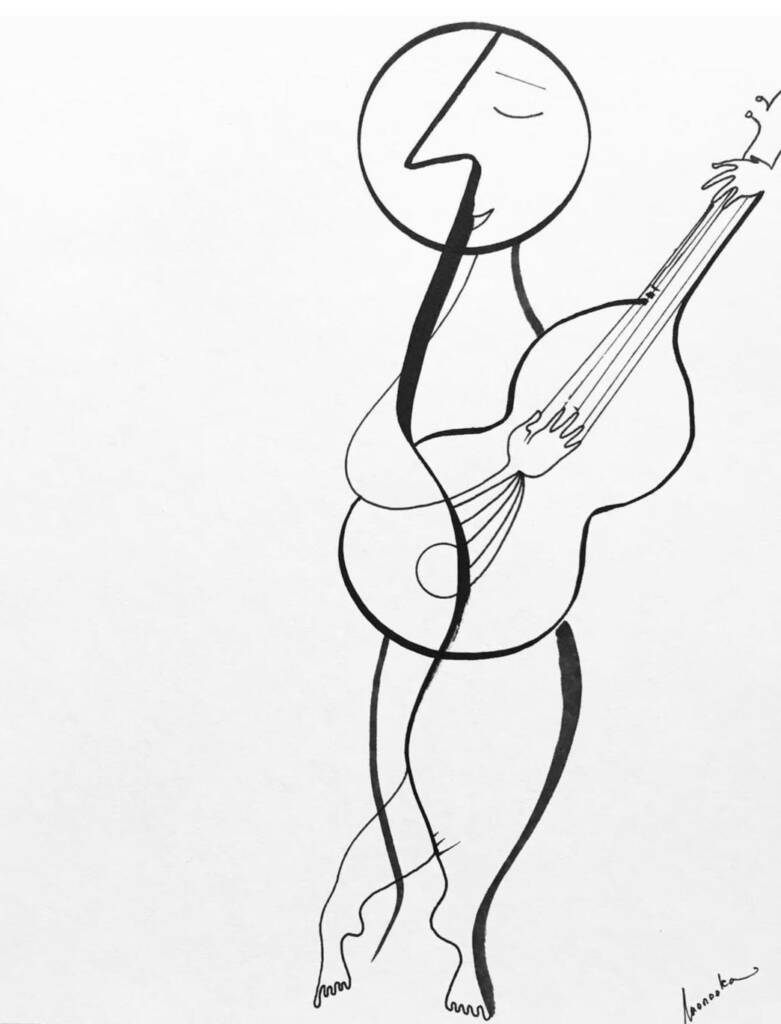
What emerges through both my conversations with Rhuari and Monica about the changing musical landscape leads me to speculate that, as the city’s venues face ever-uncertain futures, public music will find itself outside of the public house, perhaps back out on the street in broad daylight instead, or in our cafés and garden spaces, botanical gardens, and even wilder places.
And so this speculative interview ends with an invocation to the wildflower troubadours growing in urban, underfunded environments yet consistently emerging with new shoots, green with promise, spreading their songs like seeds. Play on!
Cheryl McGregor is an arts writer and poet based in Dundee. An English Literature graduate from the University of Dundee, Cheryl writes for money and love – but not necessarily in that order.

If you would like to support us in creating even better content, please consider joining or supporting our Amps Community.